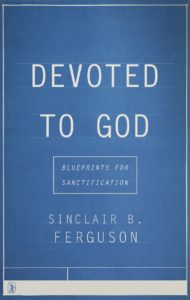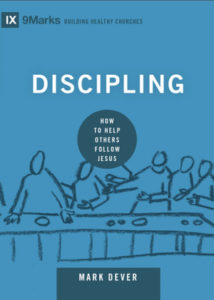
I’ve uttered many things over the years I wish I could take back. I’m sure more foolish proclamations will end up in my “Hall of Shame.” One of the more egregious examples is what I said about seminary while at my uncle’s house back in 2006.
Well, You See . . .
Several of us were seated in my Uncle Dary’s plush study reviewing the goings on in the extended Stone family. For just over a year I’d been serving in the student ministry at FBC Prosper. The Stone side of my heritage has always valued education. Thus, whenever the grandparents, aunts, uncles, and cousins were present, it wasn’t long until the question came out. Up to this point, I’d handled the issue with what I thought was appropriate deference. But for whatever reason (I’m still not sure what caused it) when the inevitable ask arrived on this occasion my response was bubbly—bubbles of the boiling kind.
The question: “Jordan, when are you going to go to seminary?”
My answer: “I’m not planning on ever going. I don’t see any need for it.”
Filling My Mouth with a Foot
For the next two and a half years I was content to let my heart only harden more. By this time, I’d joined the staff of an Acts 29 church when Driscoll was at the height of his MMA-pastor phase. The ethos of the network at the time was mainly anti-seminary. My boss at the time (in)famously declared seminary was worthless. “I can teach you everything they will, and I’ll do it for free!” he shouted across the hallway one afternoon. I soaked it in. Sometime during this era, I told my father I was going to “beat the system.” By that, I meant I would successfully move up the pastoral ladder without graduate education. Hubris rarely has rung so loud in my life. And that’s saying something.
Some dear mentors of old ran me down in late 2008 to inquire about my new role at the new church. If ever there were poster children, in a good way, for seminary work it was these two brothers. They looked like and sounded as if they’d just left a rousing theological debate at the local library. But the disposition was far from off-putting. It was oddly compelling. They asked if I’d considered going to seminary and, cut to the quick by their kind sincerity, I said, “I am now.”
And So It All Began
About eight months went by, and I hadn’t done anything related to seminary. So my mentors summoned me, literally, to the office. I showed up at their church’s office, they took my lunch order, grabbed the grub, and we broke bread. I was well on my way to eating my third chip when the ambush arrived. “So, Jordan. When will you be going to Charlotte?” one of them asked quite casually. RTS Charlotte was their alma mater, you see. My feeble response was, “My wife and I are trying to get pregnant. I’m not sure it’s wise to head east and forsake my current salary.” I’ll never forget their response, “Jordan, now is not the time for a baby! Now is the time for study!”
Sure enough, just a few weeks later my wife found out she was pregnant. After further counsel with my wife and these assertive fellows it was decided, I’d get my M.A.R. through RTS Global. I’m convinced it was one of the greatest decisions I’ve ever made.
A Seminary Apologia
Six years later I have the M.A.R. in hand; I’m one semester away from a Th.M. at SBTS, and—Lord willing—just under two years away from finishing a Ph.D. Seminary education is almost as much a part of my life as soccer used to be. As a former adversary of seminary work, let me try to offer an apology for theological education under two simple points.
Seminary education grows ability. This is, in many ways, the reason we go to seminary. We go to learn things we wouldn’t learn otherwise. Radical outliers aside, who honestly would study Hebrew on their own initiative? Would you really read Donald Fortson’s Colonial Presbyterianism: Old Faith in a New Land if you didn’t take his “History of Christianity II” course? Would you spend a weekend parsing through the communicatio idiomatum for Dr. Swain? Probably not. But my seminary experience has made me do those things. Furthermore, it’s enabled me to do them. Theological tools I never had now lie in my soul’s workshop.
Seminary gives you the ability of familiarity. It acquaints you with scholars, movements, theologies, and interpretations you’d likely never have otherwise. Sure, some students sound a lot like the caricature of seminarians—after seminary, all they can do is speak in a way no ordinary church members does. But my experience and observation say that’s not the norm. All in all, seminary will sharpen you skill with Scripture. And that’s something from which every pastor (and congregation) can profit.
Seminary education grows humility. Many young men I’ve talked to over the last five years fear the exact opposite; they’re convinced seminary is little more than “Prime Pride Fertilizer.” But that’s not the fault of the seminary. It’s the fault of the sinner attending seminary.
I’ve found few things in my life so adept at fostering humility like seminary. Many in my local church think I’m unusually smart. I might be tempted to believe them if it wasn’t for the students I spend time with in classes and seminars. They are the truly smart ones. And the professors are even smarter and more skilled. When I walk through the hallways at SBTS, I’m reminded how much I don’t know. That’s quite a good thing for humility.
The Apology in Action
Perhaps the best illustration I can offer on these benefits of ability and humility happened last May. I was in my first Ph.D. seminar with Dr. Michael Haykin on “Patristic Spirituality.” I stood up to present a paper on Eusebius of Caesarea’s work on Constantine. With a fluttering heart, I stammered through the paper. The subsequent interaction I had with Dr. Haykin was . . . well . . . humbling. He didn’t rip the paper apart, but he did tear some holes in it. He was right to do so. He then sent me on my way to consider a few sources to strengthen the work.
I left the seminar that week humbled and instructed. It seems that experience is an excellent microcosm of why seminary education can be so useful.
Save




 According to the Trust
According to the Trust



